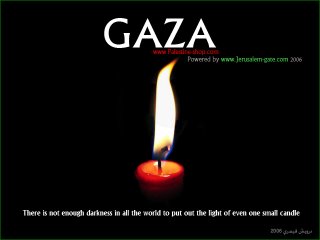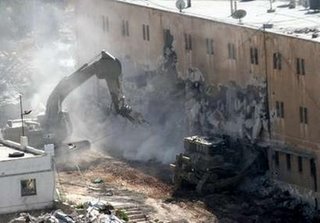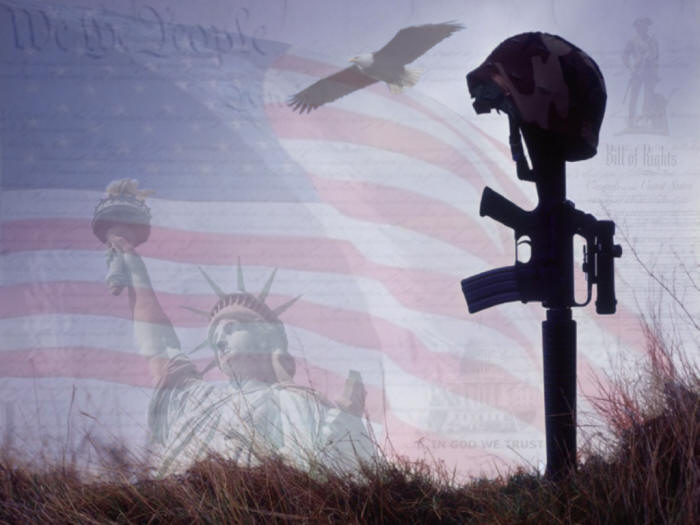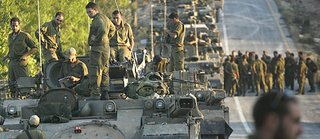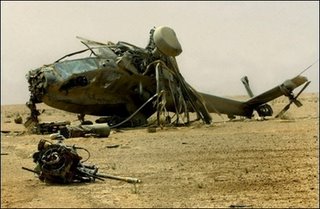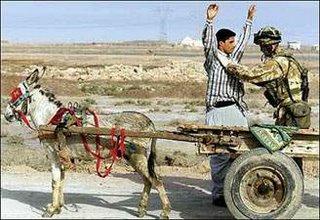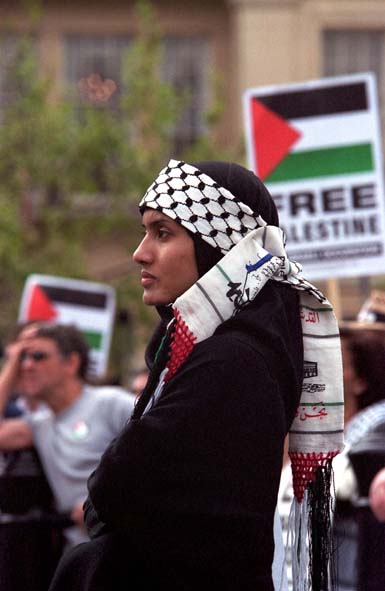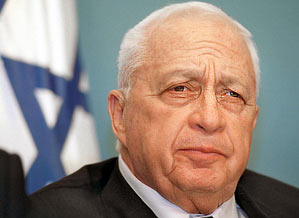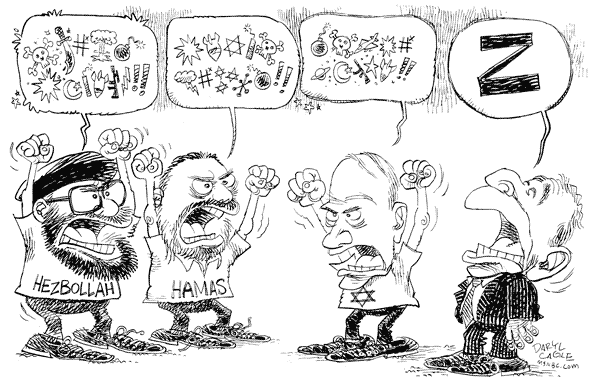(The information here is not necessary the opinion of the Blog Administrator.)Question & Answerby Stephen R. ShalomWhat are the modern origins of the Israeli-Palestinian conflict? During World War I, Britain made three different promises regarding historic Palestine. Arab leaders were assured that the land would become independent; in the Balfour declaration, Britain indicated its support for a Jewish national home in Palestine; and secretly Britain arranged with its allies to divide up Ottoman territory, with Palestine becoming part of the British empire. Historians have engaged in detailed exegesis of the relevant texts and maps, but the fundamental point is that Britain had no moral right to assign Palestine to anyone: by right Palestine belonged to its inhabitants.
In the late years of the 19th century, anti-Semitism became especially virulent in Russia and re-emerged in France. Some Jews concluded that only in a Jewish state would Jews be safe and thus founded Zionism. Most Jews at the time rejected Zionism, preferring instead to address the problem of anti-Semitism through revolutionary or reformist politics or assimilation. And for many orthodox Jews, especially the small Jewish community in Palestine, a Jewish state could only be established by God, not by humans. At first Zionists were willing to consider other sites for their Jewish state, but they eventually focused on Palestine for its biblical connections. The problem, however, was that although a Zionist slogan called Palestine "a land without people for a people without land," the land was not at all empty.
Following World War I, Britain arranged for the League of Nations to make Palestine a British "mandate," which is to say a colony to be administered by Britain and prepared for independence. To help justify its rule over Arab land, Britain arranged that one of its duties as the mandatory power would be to promote a Jewish national home.
Who were the Jews who came to Palestine?The early Zionist settlers were idealistic, often socialist, individuals, fleeing oppression. In this respect they were like the early American colonists. But also like the American colonists, many Zionists had racist attitudes toward the indigenous people and little regard for their well-being.
1Some Zionists thought in terms of Arab-Jewish cooperation and a bi-national state, but many were determined to set up an exclusively Jewish state (though to avoid antagonizing the Palestinians, they decided to use the term Jewish "national home" rather than "state" until they were able to bring enough Jews to Palestine).
Jewish immigration to Palestine was relatively limited until the 1930s,.when Hitler came to power. The U.S. and Europe closed their doors to immigration by desperate jews, making Palestine one of the few options.
Who were the indigenous people of Palestine?Pro-Israel propaganda has argued that most Palestinians actually entered Palestine after 1917, drawn to the economic dynamism of the growing Jewish community, and thus have no rights to Palestine. This argument has been elaborated in Joan Peters' widely promoted book, From Time Immemorial. However, the book has been shown to be fraudulent and its claim false.
2 The indigenous population was mostly Muslim, with a Christian and a smaller Jewish minority. As Zionists arrived from Europe, the Muslims and Christians began to adopt a distinctly Palestinian national identity.
How did the Zionists acquire land in Palestine?Some was acquired illegally and some was purchased from Arab landlords with funds provided by wealthy Jews in Europe. Even the legal purchases, however, were often morally questionable as they sometimes involved buying land from absentee landlords and then throwing the poor Arab peasants off the land. Land thus purchased became part of the Jewish National Fund which specified that the land could never be sold or leased to Arabs. Even with these purchases, Jews owned only about 6% of the land by 1947.
Was Palestinian opposition to Zionism a result of anti-Semitism?Anti-Semitism in the Arab world was generally far less severe than in Europe. Before the beginning of Zionist immigration, relations among the different religious groups in Palestine were relatively harmonious. There was Palestinian anti-Semitism, but no people will look favorably on another who enter one's territory with the intention of setting up their own sovereign state. The expulsion of peasants from their land and the frequent Zionist refusal to employ Arabs exacerbated relations.
What was the impact of World War II on the Palestine question?As World War II approached, Britain shrewdly calculated that they could afford to alienate Jews -- who weren't going to switch to Hitler's side -- but not Arabs, so they greatly restricted Jewish immigration into Palestine. But, of course, this was precisely when the need for sanctuary for Europe's Jews was at its height. Many Jews smuggled their way into Palestine as the United States and other nations kept their borders closed to frantic refugees.
At the end of the war, as the enormity of the Holocaust became evident, for the first time Zionism became a majority sentiment among world Jewry. Many U.S. Christians also supported Zionism as a way to absolve their guilt for what had happened, without having to allow Jews into the United States. U.S. Zionists, who during the war had subordinated rescue efforts to their goal of establishing a Jewish state,
3 argued that the Holocaust proved more than ever the need for a Jewish state: Had Israel existed in 1939, millions of Jews might have been saved. Actually, Palestine just narrowly avoided being overrun by the Nazis, so Jews would have been far safer in the United States than in a Jewish Palestine.
During the war many Jews in Palestine had joined the British army. By war's end, the Jewish community in Palestine was well armed, well-organized, and determined to fight. The Palestinians were poorly armed, with feudal leaders. The Mufti of Jerusalem had been exiled by the British for supporting an Arab revolt in 1936-39 and had made his way to Berlin during the war where he aided Nazi propaganda. From the Zionist point of view, it was considered a plus to have the extremist Mufti as the Palestinians' leader; as David Ben Gurion, the leader of the Jewish community in Palestine and Israel's first prime minister, advised in 1938, "rely on the Mufti."
4What were the various positions in 1947?Both the Palestinians and the Zionists wanted the British out so they could establish an independent state. The Zionists, particularly a right-wing faction led by Menachim Begin, launched a terror campaign against Britain. London, impoverished by the war, announced that it was washing its hands of the problem and turning it over to the United Nations (though Britain had various covert plans for remaining in the region).
The Zionists declared that having gone through one of the great catastrophes of modern history, the Jewish people were entitled to a state of their own, one into which they could gather Jewish refugees, still languishing in the displaced persons camps of Europe. The Zionist bottom line was a sovereign state with full control over immigration. The Palestinians argued that the calamity that befell European Jews was hardly their fault. If Jews were entitled to a state, why not carve it out of Germany? As it was, Palestine had more Jewish refugees than any other place on Earth. Why should they bear the full burden of atoning for Europe's sins? They were willing to give full civil rights (though not national rights) to the Jewish minority in an independent Palestine, but they were not willing to give this minority the right to control immigration, and bring in more of their co-religionists until they were a majority to take over the whole of Palestine.
A small left-wing minority among the Zionists called for a binational state in Palestine, where both peoples might live together, each with their national rights respected. This view had little support among Jews or Palestinians.
What did the UN do and why?In November 1947, the UN General Assembly voted to partition Palestine into two independent states, a Jewish state and an Arab state, joined by an economic union, with Jerusalem internationalized.
In 1947 the UN had many fewer members than it does today. Most Third World nations were still colonies and thus not members. Nevertheless, the partition resolution passed only because the Soviet Union and its allies voted in favor and because many small states were subject to improper pressure. For example, members of the U.S. Congress told the Philippines that it would not get U.S. economic aid unless it voted for partition. Moscow favored partition as a way to reduce British influence in the region; Israel was viewed as potentially less pro-Western than the dominant feudal monarchies.
Didn't Palestinians have a chance for a state of their own in 1947, but they rejected it by going to war with Israel?In 1947 Jews were only one third of the population of Palestine and owned only 6% of the land. Yet the partition plan granted the Jewish state 55% of the total land area. The Arab state was to have an overwhelmingly Arab population, while the Jewish state would have almost as many Arabs as Jews. If it was unjust to force Jews to be a 1/3 minority in an Arab state, it was no more just to force Arabs to be an almost 50% minority in a Jewish state.
The Palestinians rejected partition. The Zionists accepted it, but in private Zionist leaders had more expansive goals. In 1938, during earlier partition proposals, Ben Gurion stated, "when we become a strong power after the establishment of the state, we will abolish partition and spread throughout all of Palestine."
5The Mufti called Palestinians to war against partition, but in fact very few Palestinians responded. The "decisive majority" of Palestinians, confided Ben Gurion, "do not want to fight us." The majority "accept the partition as a fait accompli," reported a Zionist Arab affairs expert. The 1936-39 Arab revolt against the British had mass popular support, but the 1947-48 fighting between the Mufti's followers and the Zionist military forces had no such popular backing.
6But even if Palestinians were fully united in going to war against the partition plan, this can provide no moral justification for denying them their basic right of self- determination for more than half a century. This right is not a function of this or that agreement, but a basic right to which every person is entitled. (Israelis don't lose their right to self-determination because their government violated countless UN cease-fire resolutions.)
Didn't Israel achieve larger borders in 1948 as a result of a defensive war of independence?Arab armies crossed the border on May 15, 1948, after Israel declared its independence. But this declaration came three and a half months before the date specified in the partition resolution. The U.S. had proposed a three month truce on the condition that Israel postpone its declaration of independence. The Arab states accepted and Israel rejected, in part because it had worked out a secret deal with Jordan's King Abdullah, whereby his Arab Legion would invade the Palestinian territory assigned to the Palestinian state and not interfere with the Jewish state. (Since Jordan was closely allied to Britain, the scheme also provided a way for London to maintain its position in the region.) The other Arab states invaded as much to thwart Abdullah's designs as to defeat Israel.
7Most of the fighting that ensued took place on territory that was to be part of the Palestinian state or the internationalized Jerusalem. Thus, Israel was primarily fighting not for its survival, but to expand its borders at the expense of the Palestinians. For most of the war, the Israelis actually held both a quantitative and qualitative military edge, even apart from the fact that the Arab armies were uncoordinated and operating at cross purposes.
8When the armistice agreements were signed in 1949, the Palestinian state had disappeared, its territory taken over by Israel and Jordan, with Egypt in control of the Gaza Strip. Jerusalem, which was to have been internationalized, was divided between Israeli and Jordanian control. Israel now held 78% of Palestine. Some 700,000 Palestinians had become refugees.
Why did Palestinians become refugees in 1948?
The Israeli government claim is that Palestinians chose to leave Palestine voluntarily, instructed to do so via radio broadcasts from Arab leaders who wanted to clear a path for their armies. But radio broadcasts from the area were monitored by the British and American governments and no evidence of general orders to flee has ever been found. On the contrary, there are numerous instances of Arab leaders telling Palestinians to stay put, to keep their claim to the territory.
9 People flee during wartime for a variety of reasons and that was certainly the case here. Some left because war zones are dangerous environments. Some because of Zionist atrocities -- most dramatically at Deir Yassin where in April 1948 254 defenseless civilians were slaughtered. Some left in panic, aided by Zionist psychological warfare which warned that Deir Yassin's fate awaited others. And some were driven out at gunpoint, with killings to speed them on their way, as in the towns of Ramle and Lydda.
10There is no longer any serious doubt that many Palestinians were forcibly expelled. The exact numbers driven out versus those who panicked or simply sought safety is still contested, but what permits us to say that all were victims of ethnic cleansing is that Israeli officials refused to allow any of them to return. (In Kosovo, any ethnic Albanian refugee, whether he or she was forced out at gunpoint, panicked, or even left to make it easier for NATO to bomb, was entitled to return.) In Israel, Arab villages were bulldozed over, citrus groves, lands, and property seized, and their owners and inhabitants prohibited from returning. Indeed, not only was the property of "absentee" Palestinians expropriated, but any Palestinians who moved from one place within Israel to another during the war were declared "present absentees" and their property expropriated as well.
Of the 860,000 Arabs who had lived in areas of Palestine that became Israel, only 133,000 remained. Some 470,000 moved into refugee camps on the West Bank (controlled by Jordan) or the Gaza Strip (administered by Egypt). The rest dispersed to Lebanon, Syria, and other countries.
Why did Israel expel the Palestinians?In part to remove a potential fifth column. In part to obtain their property. In part to make room for more Jewish immigrants. But mostly because the notion of a Jewish state with a large non-Jewish minority was extremely awkward for Israeli leaders. Indeed, because Israel took over some territory intended for the Palestinian state, there had actually been an Arab majority living within the borders of Israel. Nor was the idea of expelling Palestinians something that just emerged in the 1948 war. In 1937, Ben Gurion had written to his son, "We will expel the Arabs and take their places ... with the force at our disposal."
11How did the international community react to the problem of the Palestinian refugees?In December 1948, the General Assembly passed Resolution 194, which declared that "refugees wishing to return to their homes and live in peace with their neighbors should be permitted to do so" and that "compensation should be paid for the property of those choosing not to return." This same resolution was overwhelmingly adopted year after year. Israel repeatedly refused to carry out the terms of the resolution.
Did the Arab countries take steps to resettle the Palestinian refugees?Only in Jordan were Palestinians eligible for citizenship. In Lebanon, the government feared that allowing Palestinians to become citizens would disturb the country's delicate Christian-Muslim balance; in Egypt, the shortage of arable land led the government to confine the Palestinians to the Gaza Strip. It must be noted, however, that the Palestinians were reluctant to leave the camps if that would mean acquiescing in the loss of homes and property or giving up their right to return.
It is sometimes implied that the lack of assistance to Palestinians from Arab nations justifies Israel's refusal to acknowledge and address the claims of the refugees. But if you harm someone, you are responsible for redressing that harm, regardless of whether the victim's relatives are supportive.
Hasn't there been a population exchange, with Jews from Arab lands coming to Israel and replacing the Palestinians?This argument makes individual Palestinians responsible for the wrong-doing of Arab governments. Jews left Arab countries under various circumstances: some were forced out, some came voluntarily, some were recruited by Zionist officials. In Iraq, Jews feared that they might be harmed, a fear possibly helped along by some covert bombs placed by Zionist agents.
12 But whatever the case, there are no moral grounds for punishing Palestinians (or denying them their due) because of how Jews were treated in the Arab world. If Italy were to abuse American citizens, this would not justify the United States harming or expelling Italian-Americans.
How were the Palestinians who remained within Israel treated?Most Arabs lived in the border areas of Israel and, until 1966, these areas were all declared military security zones, which essentially meant that Palestinians were living under martial law conditions for nearly 20 years. After 1966, Arab citizens of Israel continued to be the victims of harsh discrimination: most of the country's land is owned by the Jewish National Fund which prohibits its sale or lease to non-Jews; schools for Palestinians in Israel are, in the words of Human Rights Watch, "separate and unequal"; and government spending has been funneled so as to keep Arab villages underdeveloped. Thousands of Israeli Arabs live in villages declared "unrecognized" and hence ineligible for electricity or any other government services.
13Following 1948, didn't the Arab states continually try to destroy Israel?After Israel's victory in the 1948-49 war, there were several opportunities for peace. There was blame on all sides, but Israeli intransigence was surely a prime factor. In 1951, a UN peace plan was accepted by Egypt, Syria, Lebanon and Jordan, but rejected by Israel. When Nasser came to power in Egypt, he made overtures to Israel that were rebuffed. When Nasser negotiated an end to British control of the Suez Canal zone, Israeli intelligence covertly arranged a bombing campaign of western targets in Egypt as a way to discourage British withdrawal. The plot was foiled, Egypt executed some of the plotters, and Israel responded with a major military attack on Gaza.
14 In 1956, Israel joined with Britain and France in invading Egypt, drawing condemnation from the United States and the UN.
How were the Occupied Territories occupied?In June 1967, Israel launched a war in which it seized all of Palestine (the West Bank including East Jerusalem from Jordan and the Gaza Strip from Egypt), along with the Sinai from Egypt and the Golan Heights from Syria. Large numbers of Palestinians, some living in cities, towns, and villages, and some in refugee camps, came under Israeli control. (In 2001, half the Palestinian population of the Occupied Territories lived in refugee camps.
15 The Israeli conquest also sent a new wave of refugees from Palestine to surrounding countries.)
Israel's supporters argue that although Israel fired the first shots in this war, it was a justified preventive war, given that Arab armies were mobilizing on Israel's borders, with murderous rhetoric. The rhetoric was indeed blood-curdling, and many people around the world worried for Israel's safety. But those who understood the military situation -- in Tel Aviv and the Pentagon -- knew quite well that even if the Arabs struck first, Israel would prevail in any war. Nasser was looking for a way out and agreed to send his vice-president to Washington for negotiations. Israel attacked when it did in part because it rejected negotiations and the prospect of any face-saving compromise for Nasser. Menachem Begin, who was an enthusiastic supporter of this (and other) Israeli wars was quite clear about the necessity of launching an attack: In June 1967, he said, Israel "had a choice." Egyptian Army concentrations did not prove that Nasser was about to attack. "We must be honest with ourselves. We decided to attack him."
16However, even if it were the case that the 1967 war was wholly defensive on Israel's part, this cannot justify the continued rule over Palestinians. A people do not lose their right to self-determination because the government of a neighboring state goes to war. Sure, punish Egypt and Jordan -- don't give them back Gaza and the West Bank (which they had no right to in the first place, having joined with Israel in carving up the stillborn Palestinian state envisioned in the UN's 1947 partition plan). But there is no basis for punishing the Palestinian population by forcing them to submit to foreign military occupation.
Israel immediately incorporated occupied East Jerusalem into Israel proper, announcing that Jerusalem was its united and eternal capital. It then began to establish settlements in the Occupied Territories in violation of the Geneva Conventions which prohibit a conquering power from settling its population on occupied territory. These settlements, placed in strategic locations throughout the West Bank and Gaza were intended to "create facts" on the ground to make the occupation irreversible.
How did the international community respond to the Israeli occupation?In November 1967, the UN Security Council unanimously passed resolution 242. The resolution emphasized "the inadmissibility of the acquisition of territory by war" and called for the "withdrawal of Israeli armed forces from territory occupied in the recent conflict." It also called for all countries in the region to end their state of war and to respect the right of each country "to live in peace within secure and recognized boundaries."
Israel argued that because resolution 242 called for Israeli withdrawal from "territories," rather than "the territories," occupied in the recent conflict, it meant that Israel could keep some of them as a way to attain "secure" borders. The official French and Russian texts of the resolution include the definite article, but in any event U.S. officials told Arab delegates that it expected "virtually complete withdrawal" by Israel, and this was the view as well of Britain, France, and the Soviet Union.
17Palestinians objected to the resolution because it referred to them only in calling for "a just settlement to the refugee problem" rather than acknowledging their right to self- determination. By the mid-1970s, however, the international consensus -- rejected by Israel and the United States -- was expanded to include support for a Palestinian state in the West Bank and Gaza, perhaps with insignificant border adjustments.
How did the United States respond to the Israeli occupation?Prior to the 1967 war, France, not the United States, was Israel's chief weapons supplier. But now U.S. officials determined that Israel would be an extremely valuable ally to have in the Middle East and Washington became Israel's principal military and diplomatic backer.
Why, given the U.S. concern for Middle Eastern oil, was Washington supporting Israel? This assumes that the main conflict was Israel vs. the Arabs, rather than Israel and conservative, pro-Western Arab regimes vs. radical Arab nationalism. Egypt and Syria had been champions of the latter, armed by the Soviet Union, and threatening U.S. interests in the region. (On the eve of the 1967, for example, Egypt and Saudi Arabia were militarily backing opposite sides in a civil war in Yemen. Israel had plotted with Jordan against Palestinian nationalism in 1948, and in 1970 Israel was prepared to take Jordan's side in a war against Palestinians and Syria.)
Diplomatically, the U.S. soon backed off the generally accepted interpretation of resolution 242, deciding that given Israel's military dominance no negotiations were necessary except on Israel's terms. So when Secretary of State Rogers put forward a reasonable peace plan, President Nixon privately sent word to Israel that the U.S. wouldn't press the proposal.
18 When Anwar Sadat, Nasser's successor, proposed a peace plan that included cutting his ties with Moscow, Washington decided he hadn't groveled enough and ignored it. But after Egypt and Syria unsuccessfully went to war with Israel for the limited aim of regaining their lost territory, and Arab oil states called a limited oil embargo, Washington rethought its position. This led in 1979 to the Israeli-Egyptian Camp David Agreement under which Israel returned the Sinai to Egypt in return for peace and diplomatic relations. Egypt then joined Israel as a pillar of U.S. policy in the region and the two became the leading recipients of U.S. aid in the world.
What progress was made toward justice for Palestinians during the first two decades of the occupation?The Palestine Liberation Organization was formed in 1964, but it was controlled by the Arab states until 1969, when Yasser Arafat became its leader. The PLO had many factions, advocating different tactics (some carried out hijackings) and different politics. At first the PLO took the position that Israel had no right to exist and that only Palestinians were entitled to national rights in Palestine. This was the mirror image of the official Israeli view -- of both the right-wing Likud party and the Labor party -- that there could be no recognition of the PLO under any circumstances, even if it renounced terrorism and recognized Israel, let alone acceptance of a Palestinian state on any part of the Occupied Territories.
By 1976, however, the PLO view had come to accept the international consensus favoring a two-state solution. In January 1976 a resolution backed by the PLO, Egypt, Syria, Jordan, and the Soviet Union was introduced in the Security Council incorporating this consensus. Washington vetoed the resolution.
19The 1979 Camp David agreement established peace along the Egyptian-Israeli border, but it worsened the situation for Palestinians. With its southern border neutralized, Israel had a freer hand to invade Lebanon in 1982 (where the PLO was based) and to tighten its grip on the Occupied Territories.
What was the first Intifada?Anger and frustration were growing in the Occupied Territories, fueled by iron-fisted Israeli repression, daily humiliations, and the establishment of sharply increasing numbers of Israeli settlements. In December 1987, Palestinians in Gaza launched an uprising, the Intifada, that quickly spread to the West Bank as well. The Intifada was locally organized, and enjoyed mass support among the Palestinian population. Guns and knives were banned and the main political demand was for an independent Palestinian state coexisting with Israel.
20Israel responded with great brutality, with hundreds of Palestinians killed. The Labor Party Defense Minister, Yitzhak Rabin, urged Israeli soldiers to break the bones of Palestinian demonstrators. PLO leader Khalil al-Wazir, who from Tunis had advised the rejection of arms, was assassinated (with the approval of Rabin); Israel was especially eager to repress Palestinian leaders who advocated a Palestinian state that would coexist with Israel.
21 By 1989, the initial discipline of the uprising had faded, as a considerable number of individual acts of violence by Palestinians took place. Hamas, an organization initially promoted by the Israelis as a counterweight to the PLO,
22 also gained strength; it called for armed attacks to achieve an Islamic state in all of Palestine.
What were the Oslo Accords?Arafat had severely weakened his credibility by his flirtation with Saddam Hussein following the Iraqi invasion of Kuwait. (The Iraqi leader had opportunistically tried to link his withdrawal from Kuwait to an Israeli withdrawal from the Occupied Territories.) Israel saw Arafat's weakness as an opportunity. Better to deal with Arafat while he was weak, before Hamas gained too much influence. Let Arafat police the unruly Palestinians, while Israel would maintain its settlements and control over resources.
The Oslo agreement consisted of "Letters of Mutual Recognition" and a Declaration of Principles. In Arafat's letter he recognized Israel's right to exist, accepted various UN resolutions, renounced terrorism and armed struggle. Israeli Prime Minister Rabin in his letter agreed to recognize the PLO as the representative of the Palestine people and commence negotiations with it, but there was no Israeli recognition of the Palestinian right to a state.
The Declaration of Principles was signed on the White House lawn on September 13, 1993. In it, Israel agreed to redeploy its troops from the Gaza Strip and from the West Bank city of Jericho. These would be given self-governing status, except for the Israeli settlements in Gaza. A Palestinian Authority (PA) would be established, with a police force that would maintain internal order in areas from which Israeli forces withdrew. Left for future resolution in "permanent status" talks were all the critical and vexatious issues: Jerusalem, refugees, settlements, and borders. These talks were to commence by year three of the agreement.
In September 1995 an interim agreement -- commonly called Oslo II -- was signed. This divided the Occupied Territories into three zones, Area A, Area B, and Area C. (No mention was made of a fourth area: Israeli-occupied East Jerusalem.) In area A, the PA was given civil and security control but not sovereignty; in area B the PA would have civil control and the Israelis security control; and area C was wholly under Israeli control (these included the settlements, the network of connecting roads, and most of the valuable land and water resources of the West Bank). In March 2000, 17% of the West Bank was designated area A -- where the vast majority of Palestinians lived -- 24% area B, and 59% area C. In the Gaza Strip, with a population of over a million Palestinians, 6,500 Israeli settlers lived in the 20% of the territory that made up area C. Palestinians thus were given limited autonomy -- not sovereignty -- over areas of dense population in the Gaza Strip and small, non-contiguous portions of the West Bank (there were 227 separate and disconnected enclaves),
23 which meant that the PA was responsible chiefly for maintaining order over poor and angry Palestinians.
How did Israel respond to the Oslo Accords?Whatever hopes Oslo may have inspired among the Palestinian population, most Israeli officials had an extremely restricted vision of where it would lead. In a speech in October 1995, Rabin declared that there would not be a return to the pre-1967 borders, Jerusalem would remain united and under exclusive Israeli sovereignty, and most of the settlements would remain under Israeli sovereignty. Rabin said he wanted the "entity" that Palestinians would get to be "less than a state."
24 Under Rabin, settlements were expanded and he began a massive program of road-building, meant to link the settlements and carve up the West Bank. (These by-pass roads, built on confiscated Palestinian land and U.S.- funded, were for Israelis only.)
In 1995, Rabin was assassinated by a right-wing Israeli and he was succeeded as prime minister by Shimon Peres. But Peres, noted his adviser Yossi Beilin, had an even more limited view than Rabin, wanting any future Palestinian state to be located only in Gaza.
25 Yossi Sarid, head of the moderate left Israeli party Meretz, said that Peres's plan for the West Bank was "little different" from that of Ariel Sharon.
26 Settlements and by-pass roads expanded further.
In May 1996, Likud's Benjamin Netanyahu who was openly opposed to the Oslo accords was elected prime minister. Netanyahu reneged on most of the already agreed on Israeli troop withdrawals from occupied territory, continued building settlements and roads, stepped up the policy of sealing off the Palestinian enclaves, and refused to begin the final status talks required by Oslo.
27In 1999, Labor's Ehud Barak won election as prime minister. Barak had been a hardliner, but he had also confessed that if he had been born a Palestinian he probably would have joined a terrorist organization
28 -- so his intentions were unclear. His policies, however, in his first year in office were more of the same: settlements grew at a more rapid pace than under Netanyahu, agreed-upon troops withdrawals were not carried out, and land confiscations and economic closures continued. His proposed 2001 government budget increased the subsidies supporting settlements in the Occupied Territories.
29What was the impact of the Oslo accords?The number of Israeli settlers since Oslo (1993) grew from 110,000 to 195,000 in the West Bank and Gaza; in annexed East Jerusalem, the Jewish population rose from 22,000 to 170,000.
30 Thirty new settlements were established and more than 18,000 new housing units for settlers were constructed.
31 From 1994-2000, Israeli authorities confiscated 35,000 acres of Arab land for roads and settlements.
32 Poverty increased, so that in mid-2000, more than one out of five Palestinians had consumption levels below $2.10 a day.
33 According to CIA figures, at the end of 2000, unemployment stood at 40%.
34 Israeli closure policies meant that Palestinians had less freedom of movement -- from Gaza to the West Bank, to East Jerusalem, or from one Palestinian enclave to another -- than they had before Oslo.
35What was U.S. policy during this period?The United States has been the major international backer of Israel for more than three decades. Since 1976 Israel has been the leading annual recipient of U.S. foreign aid and is the largest cumulative recipient since World War II. And this doesn't include all sorts of special financial and military benefits, such as the use of U.S. military assistance for research and development in the United States. Israel's economy is not self-sufficient, and relies on foreign assistance and borrowing. During the Oslo years, Washington gave Israel more than $3 billion per year in aid, and $4 billion in FY 2000, the highest of any year except 1979. Of this aid, grant military aid was $1.8 billion a year since Oslo, and more than $3 billion in FY 2000, two thirds higher than ever before.
36Diplomatically, the U.S. retreated from various positions it had held for years. Since 1949, the U.S. had voted with the overwhelming majority of the General Assembly in calling for the right of return of Palestinian refugees. In 1994, the Clinton administration declared that because the refugee question was something to be resolved in the permanent status talks, the U.S. would no longer support the resolution. Likewise, although the U.S. had previously agreed with the rest of the world (and common sense) in considering East Jerusalem occupied territory, it now declared that Jerusalem's status too was to be decided in the permanent status talks. On three occasions in 1995 and 1997, the Security Council considered draft resolutions critical of Israeli expropriations and settlements in East Jerusalem; Washington vetoed all three.
37What happened at Camp David?Permanent status talks between Israel and the Palestinians as called for by the Oslo agreement finally took place in July 2000 at Camp David, in the United States, with U.S. mediators. The standard view is that Barak made an exceedingly generous offer to Arafat, but Arafat rejected it, choosing violence instead.
A U.S. participant in the talks, Robert Malley, has challenged this view.
38 Barak offered -- but never in writing and never in detail; in fact, says, Malley, "strictly speaking, there never was an Israeli offer" -- to give the Palestinians Israeli land equivalent to 1% of the West Bank (unspecified, but to be chosen by Israel) in return for 9% of the West Bank which housed settlements, highways, and military bases effectively dividing the West Bank into separate regions. Thus, there would have been no meaningfully independent Palestinian state, but a series of Bantustans, while all the best land and water aquifers would be in Israeli hands. Israel would also "temporarily" hold an additional 10 percent of West Bank land. (Given that Barak had not carried out the previous withdrawals to which Israel had committed, Palestinian skepticism regarding "temporary" Israeli occupation is not surprising.) It's a myth, Malley wrote,
39 that "Israel's offer met most if not all of the Palestinians' legitimate aspirations" and a myth as well that the "Palestinians made no concession of their own." Some Israeli analysts made a similar assessment. For example, influential commentator Ze'ev Schiff wrote that, to Palestinians, "the prospect of being able to establish a viable state was fading right before their eyes. They were confronted with an intolerable set of options: to agree to the spreading occupation ... or to set up wretched Bantustans, or to launch an uprising."
40What caused the second Intifada?On September 28, 2000 Ariel Sharon, then a member of Parliament, accompanied by a thousand-strong security force, paid a provocative visit approved by Barak to the site of the Al Aqsa mosque. The next day Barak sent another large force of police and soldiers to the area and, when the anticipated rock throwing by some Palestinians occurred, the heavily-augmented police responded with lethal fire, killing four and wounding hundreds. Thus began the second Intifada.
The underlying cause was the tremendous anger and frustration among the population of the Occupied Territories, who saw things getting worse, not better, under Oslo, whose hopes had been shattered, and whose patience after 33 years of occupation had reached the boiling point.
Who is Ariel Sharon?Sharon was the commander of an Israeli force that massacred some seventy civilians in the Jordanian village of Qibya in 1953. He was Defense Minister in 1982, when Israel invaded Lebanon, causing the deaths of 17,000 civilians. In September 1982, Lebanese forces allied to Israel slaughtered hundreds of Palestinian non- combatants in the Sabra and Shitila refugee camps, a crime for which an Israeli commission found Sharon to bear indirect responsibility. As Housing Minister in various Israeli governments, Sharon vigorously promoted the settlements in the Occupied Territories. In January 2001, he took office as Prime Minister.
Conquerors frequently justify their conquests by claiming security needs. This was the argument Israel gave for years why it couldn't return the Sinai to Egypt or pull out of Lebanon. Both of these were done, however, and Israel's security was enhanced rather than harmed. True, the Oslo Accords, which turned over disconnected swatches of territory to Palestinian administration, may not have improved Israeli security. But as Shimon Peres, one of the architects of the Oslo agreement and Sharon's current Foreign Minister acknowledged, Oslo was flawed from the start. "Today we discover that autonomy puts the Palestinians in a worse situation." The second Intifada could have been avoided, Peres said, if the Palestinians had had a state from the outset. "We cannot keep three and a half million Palestinians under siege without income, oppressed, poor, densely populated, near starvation."
48 Israel is the region's only nuclear power. Beyond that, it is the strongest military power in the Middle East. Surely it cannot need to occupy neighboring territory in order to achieve security. Nothing would better guarantee the Israeli people peace and security than pulling out of the Occupied Territories.
Isn't the Palestinian demand for the right of return just a ploy to destroy Israel?Allowing people who have been expelled from their homes the right to return is hardly an extreme demand. Obviously this can't mean throwing out people who have been living in these homes for many years now, and would need to be carefully worked out. Both Palestinian officials and the Arab League have indicated that in their view the right of return should be implemented in a way that would not create a demographic problem for Israel.
49 Of course, one could reasonably argue that an officially Jewish state is problematic on basic democratic grounds. (Why should a Jew born in Brooklyn have a right to "return" to Israel while a Palestinian born in Haifa does not?) In any event, however, neither the Arab League nor Arafat have raised this objection.
50Don't Palestinians just view their own state as the first step in eliminating Israel entirely?Hamas and a few other, smaller Palestinian groups object not just to the occupation but to the very existence of Israel. But the Hamas et al. position is a distinctly minority sentiment among Palestinians, who are a largely secular community that has endorsed a two-state settlement. To be sure, Hamas has been growing in strength as a result of the inability of the Palestinian Authority to deliver a better life for Palestinians. If there were a truly independent Palestinian state, one can assume that Hamas would find far fewer volunteers for its suicide squads. It must be acknowledged, though, that the longer the mutual terror continues, the harder it will be to achieve long term peace.
Is a two-state solution just?There is a broad international consensus on a two-state solution, along the lines of the Saudi peace proposal. Such a solution is by no means ideal. Palestine is a small territory to be divided into two states; it forms a natural economic unit. An Israeli state that discriminates in favor of Jews and a Palestinian state that will probably be equally discriminatory will depart substantially from a just outcome. What's needed is a single secular state that allows substantial autonomy to both national communities, something along the lines of the bi-national state proposed before 1948. This outcome, however, does not seem imminent. A two-state solution may be the temporary measure that will provide a modicum of justice and allow Jews and Palestinians to move peacefully forward to a more just future.
--------------
Stephen R. Shalom teaches political science at William Paterson University and is the author of Imperial Alibis (South End Press).
Notes

